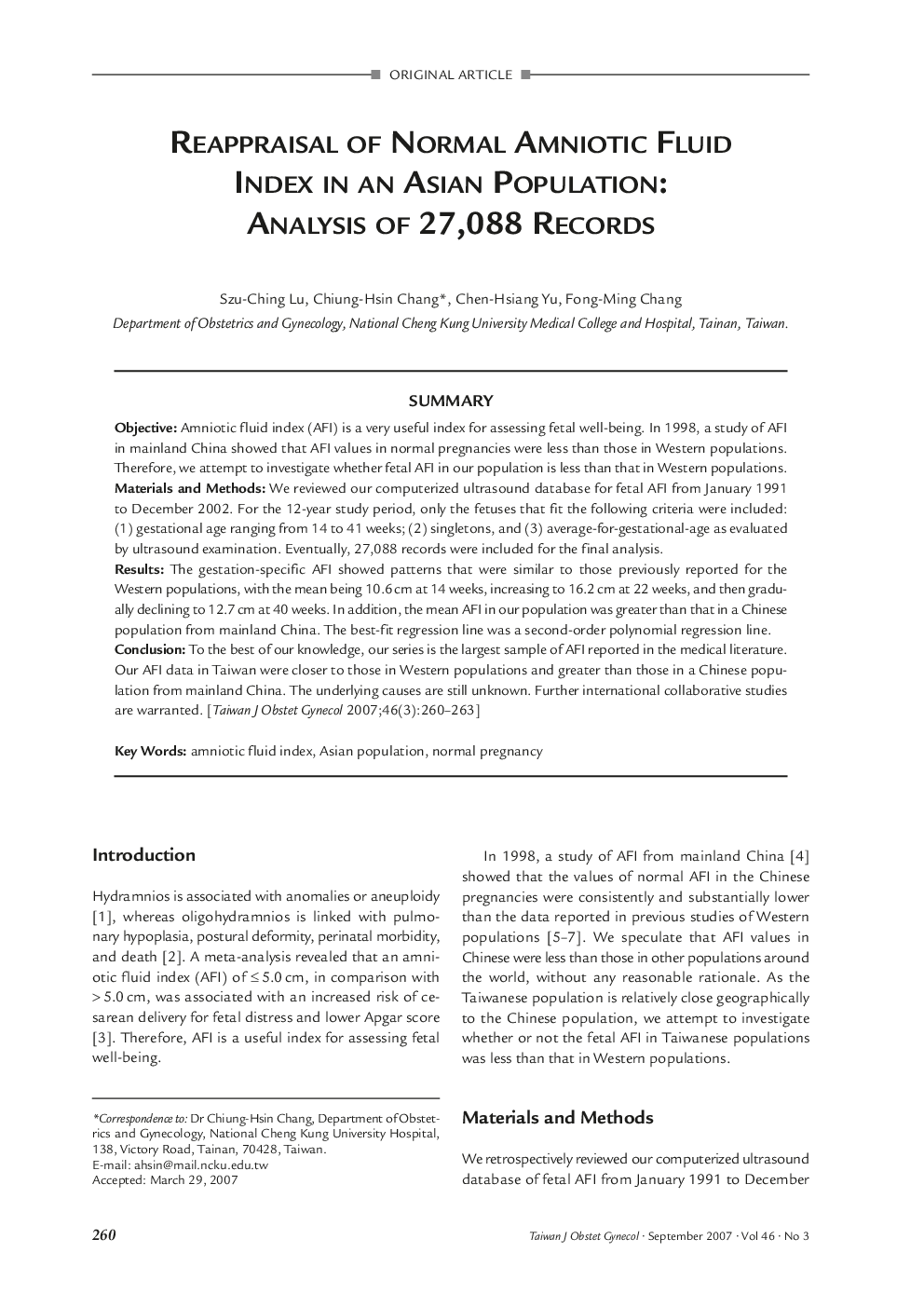| Article ID | Journal | Published Year | Pages | File Type |
|---|---|---|---|---|
| 3976290 | Taiwanese Journal of Obstetrics and Gynecology | 2007 | 4 Pages |
SummaryObjectiveAmniotic fluid index (AFI) is a very useful index for assessing fetal well-being. In 1998, a study of AFI in mainland China showed that AFI values in normal pregnancies were less than those in Western populations. Therefore, we attempt to investigate whether fetal AFI in our population is less than that in Western populations.Materials and MethodsWe reviewed our computerized ultrasound database for fetal AFI from January 1991 to December 2002. For the 12-year study period, only the fetuses that fit the following criteria were included: (1) gestational age ranging from 14 to 41 weeks; (2) singletons, and (3) average-for-gestational-age as evaluated by ultrasound examination. Eventually, 27,088 records were included for the final analysis.ResultsThe gestation-specific AFI showed patterns that were similar to those previously reported for the Western populations, with the mean being 10.6cm at 14 weeks, increasing to 16.2cm at 22 weeks, and then gradually declining to 12.7cm at 40 weeks. In addition, the mean AFI in our population was greater than that in a Chinese population from mainland China. The best-fit regression line was a second-order polynomial regression line.ConclusionTo the best of our knowledge, our series is the largest sample of AFI reported in the medical literature. Our AFI data in Taiwan were closer to those in Western populations and greater than those in a Chinese population from mainland China. The underlying causes are still unknown. Further international collaborative studies are warranted.
